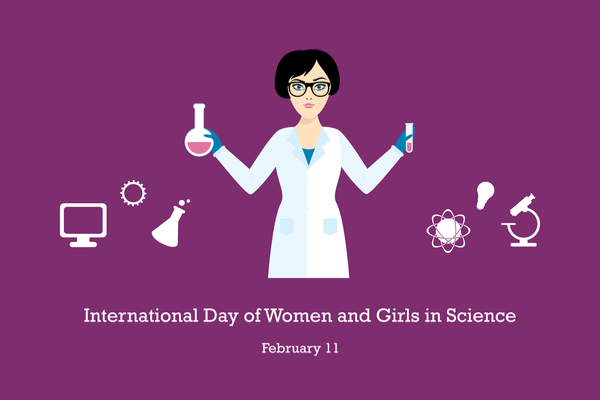IDoWGiS was founded by HRH Princess Dr. Nisreen El-Hashemite in 2015 and formally declared at the 70th Session of the United Nations General Assembly. It gained sponsorship of more than 65 countries and the “approval of all Member States to the resolution signals the global community’s interest in transforming our world through achieving gender parity in educational opportunity and scientific participation and preparation.”
To celebrate this day, here are some amazing stories from some of NATS female academics.
Dr Jennifer Hiscock has founded the ‘Women in Supramolecular Chemistry Network’ which continues to enjoy global success.
“The overall aim of WISC is to develop an international community of supramolecular chemistry researchers, and to produce a flagship network that will increase diversity within the global supramolecular chemistry community, with a specific initial focus to increase the proportion of women employed within science post-PhD”
Dr Jennifer Hiscock, Founding member of WISC
In 2020, Jen was recognised as a future research and innovation leader by the UK Research and Innovation’s flagship scheme.
Dr Vicky Mason achieved a Public Engagement Award from the South East Physics Network (SEPnet) in March 2021. Vicky gained this award for her public engagement over more than 10 years within the department, and especially for her work with Discovery Planet, a community interest company based in Thanet.
In 2021 the University Teaching Prizes were announced including winners Dr Jill Shepherd and Dr Michelle Garrett, along with Sashi Kommu and Tim Fenton, who won a prize due to their collaborative work on the Patient Centred Engagement of Students clinical day (PaCES), which increased student’s clinical exposure. A day which will be running again this year.
This is just a taster of what our academics have accomplished.
Did you know?
That women are typically given smaller research grants than their male colleagues and while they represent 33.3% of all researchers, only 12% of members of national science academies are women!
Also that in cutting edge fields such as artificial intelligence, only one in five professionals (22%) are female.
Despite a shortage of skills in most of the technological fields driving the Fourth Industrial Revolution, women still account for only 28% of engineering graduates and 40% of graduates in computer science and informatics.
Lastly that female researchers tend to have shorter, less well-paid careers. Their work is underrepresented in high-profile journals and they are often passed over for promotions.
We love hearing about your accomplishments, so please do keep in touch with us at natsnews@kent.ac.uk.

